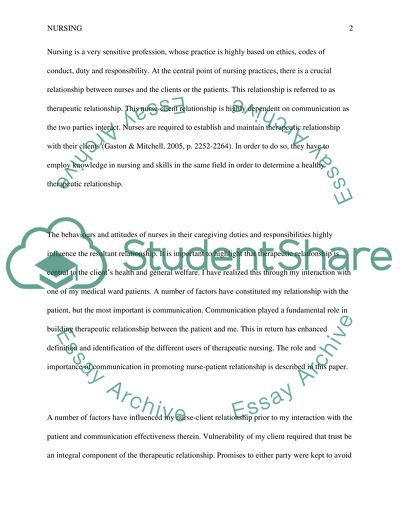Cite this document
(“Explain the importance of communication in promoting the therapeutic Coursework”, n.d.)
Retrieved from https://studentshare.org/nursing/1588542-explain-the-importance-of-communication-in-promoting-the-therapeutic-relationship
Retrieved from https://studentshare.org/nursing/1588542-explain-the-importance-of-communication-in-promoting-the-therapeutic-relationship
(Explain the Importance of Communication in Promoting the Therapeutic Coursework)
https://studentshare.org/nursing/1588542-explain-the-importance-of-communication-in-promoting-the-therapeutic-relationship.
https://studentshare.org/nursing/1588542-explain-the-importance-of-communication-in-promoting-the-therapeutic-relationship.
“Explain the Importance of Communication in Promoting the Therapeutic Coursework”, n.d. https://studentshare.org/nursing/1588542-explain-the-importance-of-communication-in-promoting-the-therapeutic-relationship.


